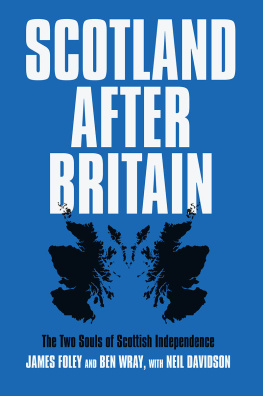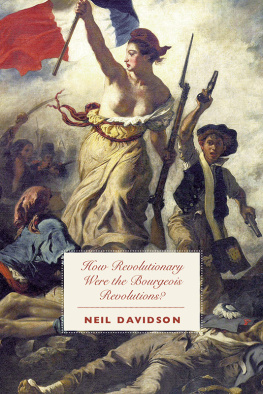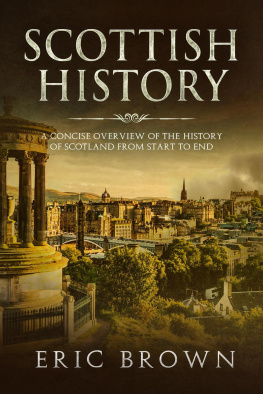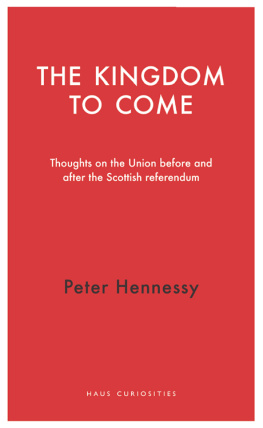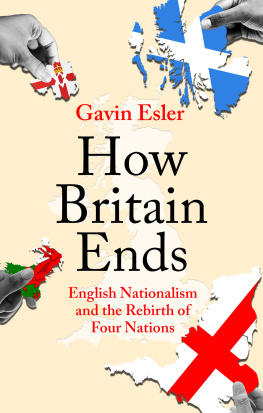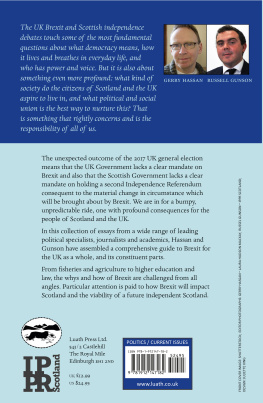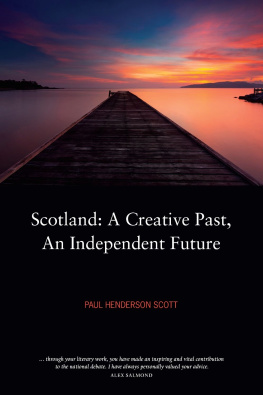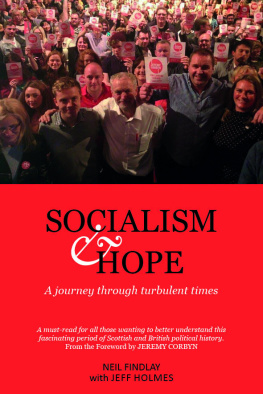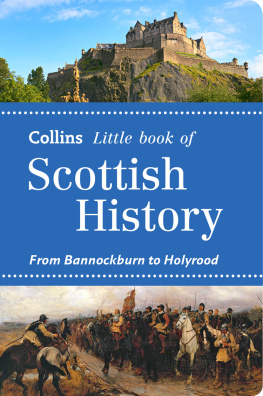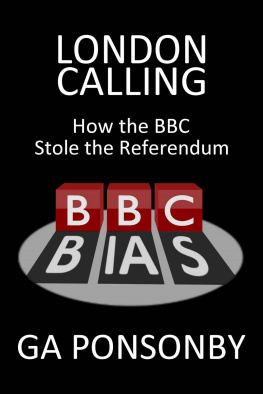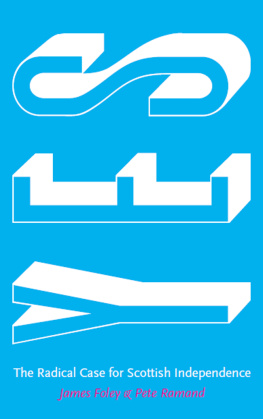Contents

Scotland after Britain
James Foley is a lecturer in politics at Glasgow Caledonian University. He is the author of Yes: The Radical Guide to Scottish Independence and the editor of Contesting Cosmopolitan Europe.
Ben Wray is a freelance journalist and researcher. He was formerly editor of digital media site CommonSpace and, prior to that, head of policy at the Common Weal think tank.
Neil Davidson (19572020) was a historian, socialist activist, and lecturer in Sociology at the University of Glasgow. Author of numerous books, Neil won the Isaac and Tamara Deutscher Memorial Prize for Discovering the Scottish Revolution.
Scotland after Britain
The Two Souls of Scottish Independence
James Foley and Ben Wray
with Neil Davidson

First published by Verso 2022
James Foley, Ben Wray, Neil Davidson 2022
All rights reserved
The moral rights of the authors have been asserted
1 3 5 7 9 10 8 6 4 2
Verso
UK: 6 Meard Street, London W1F 0EG
US: 388 Atlantic Avenue, Brooklyn, NY 11217
versobooks.com
Verso is the imprint of New Left Books
ISBN-13: 978-1-78873-581-0
ISBN-13: 978-1-78873-583-4 (US EBK)
ISBN-13: 978-1-78873-582-7 (UK EBK)
British Library Cataloguing in Publication Data
A catalogue record for this book is available from the British Library
Library of Congress Cataloging-in-Publication Data
Names: Davidson, Neil, 19572020 author. | Foley,
James (Founding member of the Radical Independence Campaign), author. | Wray, Ben (Freelance journalist, writer and researcher), author.
Title: Scotland after Britain : the two souls of Scottish independence / Neil Davidson, James Foley and Ben Wray.
Description: London ; New York : Verso Books, 2022. | Includes bibliographical references.
Identifiers: LCCN 2022013711 (print) | LCCN 2022013712 (ebook) | ISBN 9781788735810 (paperback) | ISBN 9781788735834 (ebk)
Subjects: LCSH: Scotland Politics and government 21st century. | Scotland History Autonomy and independence movements. | Home rule Scotland. | Income distribution Political aspects Scotland.
Classification: LCC JN1228 .D38 2022 (print) | LCC JN1228 (ebook) | DDC 320.9411 dc23/eng/20220518
LC record available at https://lccn.loc.gov/2022013711
LC ebook record available at https://lccn.loc.gov/2022013712
Typeset in Minion Pro by Hewer Text UK Ltd, Edinburgh
Printed and bound by CPI Group (UK) Ltd, Croydon, CRO 4YY
Contents
Neil Davidson started this journey with us; tragically, he never got the chance to finish it. In the early stages of writing the book, Neil collapsed during a conference he was hosting on Trotskys theory of uneven and combined development. Soon after, our worst fears were realised, as Neil was diagnosed with cancer. He died within the year, during the early phase of the pandemic.
The devastating irony was that this tragedy began during a conference that was the culmination of a lifes project. Neil had sought to make Scotland a centre for scientific socialist theory and, conversely, to use those theories to cast a critical eye on Scotlands various left-wing pretensions. The conference, which brought to Glasgow such figures as Justin Rosenberg, Charlie Post and Robert Brenner, testified to Neils growing reputation in the field of historical materialism. It was international in scope, but sufficiently embedded in the local to attract critical theorists from across the field of Scottish studies.
Neil contributed one full chapter to Scotland after Britain, , which we have retained largely as he intended. Via discussion and notes, he contributed directly or indirectly to other chapters. More broadly, his ideas and his spirit were an inspiration to us both. We learned a lot from Neils teaching, but we learned equally from his example, as someone who never sold out or bought in to the mythologies of the Scottish establishment. There is thus something of Neil in every chapter here. Neils ethic was defined by unsparing critique for both Scottish and Westminster ruling philosophies, especially when the status quo was framed as progressive.
Equally, final editorial judgements are our own. We had some minor, nuanced differences of perspective with Neil, over issues such as the role of professionalmanagerial elites in capitalism, or the importance of the transnational dimension in politics. And naturally we insist that any errors or omissions here are ours and ours alone. But we also wish to respect how much of this book reflects Neils ideas and contributions. It was Neils wish that we should finish this book and, in doing so, we have sought to honour his critical spirit.
We have had to balance our respect for Neils work with bringing coherence to a moving target that has been constantly changing shape. Above all, we had to address the shifting ideologies of the post-2014, post-Brexit Scottish governing class and their counterparts in London; and address the complicated, evolving role of leftism in these debates. In all that, we have endeavoured to retain our original parameters: a respect for the moment of 2014, for the principle of independence and for the outpouring of anti-establishment dissidence that issued from the Yes campaign; allied to a critical stance on Scottish nationalism, whether in the mode of Braveheart machismo, Salmond-era Celtic Tiger boosterism, or Sturgeon-era cosmopolitan nation-branding (which, we argue, are not as divergent as either side of the nationalist internal war would have you believe).
A final note: Scotland after Britain was written before the RussiaUkraine war and the interrelated cost of living crisis. However, neither factor would substantially change our analysis or our proposals. Neil was, like ourselves, a critic of Vladimir Putins efforts to carve out a Russian sphere of sub-imperial influence, and would have been appalled by the 2022 invasion. But he would also have been sceptical of decontextualised, ahistorical and (lets be blunt) hypocritical outrage. Neither Anglo-American foreign policymakers nor NATO have shown the remotest interest in national sovereignty before 2022. Indeed, they have actively flouted the principle. A lifelong critic of Western interventions, Neil, we are sure, would agree with our own assessment that, in terms of moral and logical consistency, those who condemned the NATO occupation of Afghanistan and the disastrous bombing campaigns in Libya are those best placed to condemn Putins invasion.
The list of our political debts is lengthy; sadly, we cannot list specific names, but you all know who you are. We owe particular thanks to Jamie Allinson, Chris Bambery, Raymond Morrell and Alex Law for offering invaluable feedback on an earlier draft of this book (naturally, any errors are our own). We must also acknowledge our editor, Rosie Warren, for her perseverance, and our partners, Miren and Cat, for their patience. James would especially like to thank Pete Ramand, Umut Korkut, and his colleagues at Glasgow Caledonian University. Ben gives thanks to former colleagues at Common Weal and present colleagues at Brave New Europe. Finally, we extend special thanks to Neils partner, Cathy Watkins, who was continuously helpful during Neils fading health and after his passing.
James Foley and Benjamin Wray
May 2022
Introduction: Independence
in an Era of Ruptures
This book examines how the Scottish national question emerged from the political fringes to become Britains most enduring and at times most divisive conflict. While Scotland is our focus, we are conscious that any consideration of independence also poses wider questions about the United Kingdom, a postcolonial, multinational state with an outsize role in the worlds military and economic affairs. For generations, British politics was dominated by its core functions, with parliamentary conflict centring on voters caught up in the finance-led boom in London and the south-east, and foreign policy dominated by aspirations to be a pivotal power between Europe and America. More recently, with Scotlands 2014 referendum, Brexit and the re-politicisation of the Irish border, the UK periphery has experienced new agency in shaping the states future.

